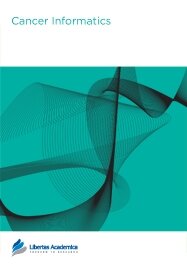

Publication Date: 27 Aug 2010
Type: Original Research
Journal: Cancer Informatics
doi: 10.4137/CIN.S5756

The size and scope of microarray experiments continue to increase. However, datasets generated on different platforms or at different centres contain biases. Improved techniques are needed to remove platform- and batch-specific biases. One experimental control is the replicate hybridization of a subset of samples at each site or on each platform to learn the relationship between the two platforms. To date, no algorithm exists to specifically use this type of control. LTR is a linear-modelling-based algorithm that learns the relationship between different microarray batches from replicate hybridizations. LTR was tested on a new benchmark dataset of 20 samples hybridized to different Affymetrix microarray platforms. Before LTR, the two platforms were significantly different; application of LTR removed this bias. LTR was tested with six separate data pre-processing algorithms, and its effectiveness was independent of the pre-processing algorithm. Sample-size experiments indicate that just three replicate hybridizations can significantly reduce bias. An R library implementing LTR is available.
PDF (4.82 MB PDF FORMAT)
RIS citation (ENDNOTE, REFERENCE MANAGER, PROCITE, REFWORKS)
BibTex citation (BIBDESK, LATEX)
XML
PMC HTML

Compared with other journals we considered for publishing, Cancer Informatics provided extremely rapid but quality turnaround from draft submission to a flawlessly typeset final publication. Moreover, sharing the article is now as easy as sharing a link with no subscriptions required, and additional code and data files are equally accessible, supporting reproducible research. Because it has published many of our references we feel confident that our target readership must follow the journal. This is further ...

All authors are surveyed after their articles are published. Authors are asked to rate their experience in a variety of areas, and their responses help us to monitor our performance. Presented here are their responses in some key areas. No 'poor' or 'very poor' responses were received; these are represented in the 'other' category.See Our Results
Copyright © 2013 Libertas Academica Ltd (except open access articles and accompanying metadata and supplementary files.)
FacebookGoogle+Twitter
PinterestTumblrYouTube